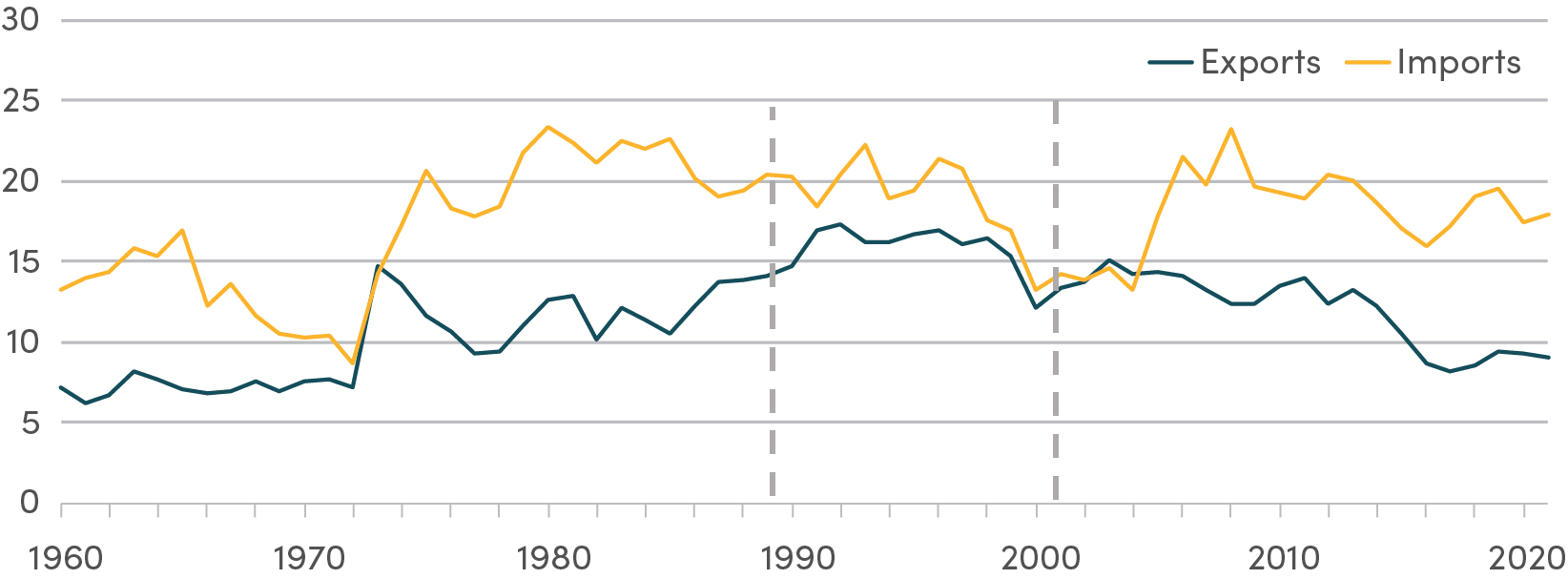South Asia is home to just under 2 billion people and almost a third of the world’s poorest. As China’s growth slowed in recent years, India surpassed it to become one of the world’s fastest growing economies. But can India sustain the pace, and will the rest of the region follow?
During the World Bank-International Monetary Fund annual meetings last week, I had the pleasure of participating in an excellent panel discussion on how to improve South Asian competitiveness—and how to ensure that the process is pro-poor. In a new report titled “South Asia’s Turn,” World Bank researchers explore what it would take for the countries of the region to exploit today’s globalization opportunities more effectively.
Starting roughly four decades ago, China harnessed globalization in support of economic reforms that contributed to rapid growth and a massive reduction in poverty. But the new report argues that India and others in the region are still not realizing their vast potential, in part because the region is less integrated in the global economy. The goal of becoming more competitive is not to increase trade for its own sake, but to improve the lives of people, especially the poor. Trade creates jobs and, if it contributes to higher growth, drives job creation throughout the economy.
One key conclusion in the report is that South Asia is not taking advantage of its abundant supply of labor. Given prevailing wage rates and productivity levels, the authors conclude that the region’s firms should be using three times as much labor (relative to capital). The report points to management behavior as one explanation, but also to labor market regulations that make it difficult to hire and fire people.
Many developing countries, including some in South Asia, need to undertake legal reforms to make labor markets more flexible. But reform should not ignore the needs of vulnerable workers. Safety nets must be in place to cushion the blow for workers losing their jobs and ensure they do not fall back into poverty. And strong enforcement of the core labor standards, especially freedom of association and the right to collective bargaining, would help workers feel more in control. Upholding decent working conditions would also help attract and retain, reputation-conscious, brand-name buyers in the apparel and electronics industries, as would programs to upgrade workers’ skills.
Including complementary policies to protect people as part of a reform package to make labor markets more flexible would make reform more politically palatable. As Richard Freeman and I wrote in our book on the topic, globalization and higher labor standards should be promoted together because they reinforce one another in positive ways, both politically and economically. The new World Bank report provides important recommendations for governments and firms in South Asia to become more competitive. But let’s not forget that people want not just jobs, but decent jobs that help them rise out of poverty without endangering their lives or threatening their health.
CGD blog posts reflect the views of the authors, drawing on prior research and experience in their areas of expertise.
CGD is a nonpartisan, independent organization and does not take institutional positions.




